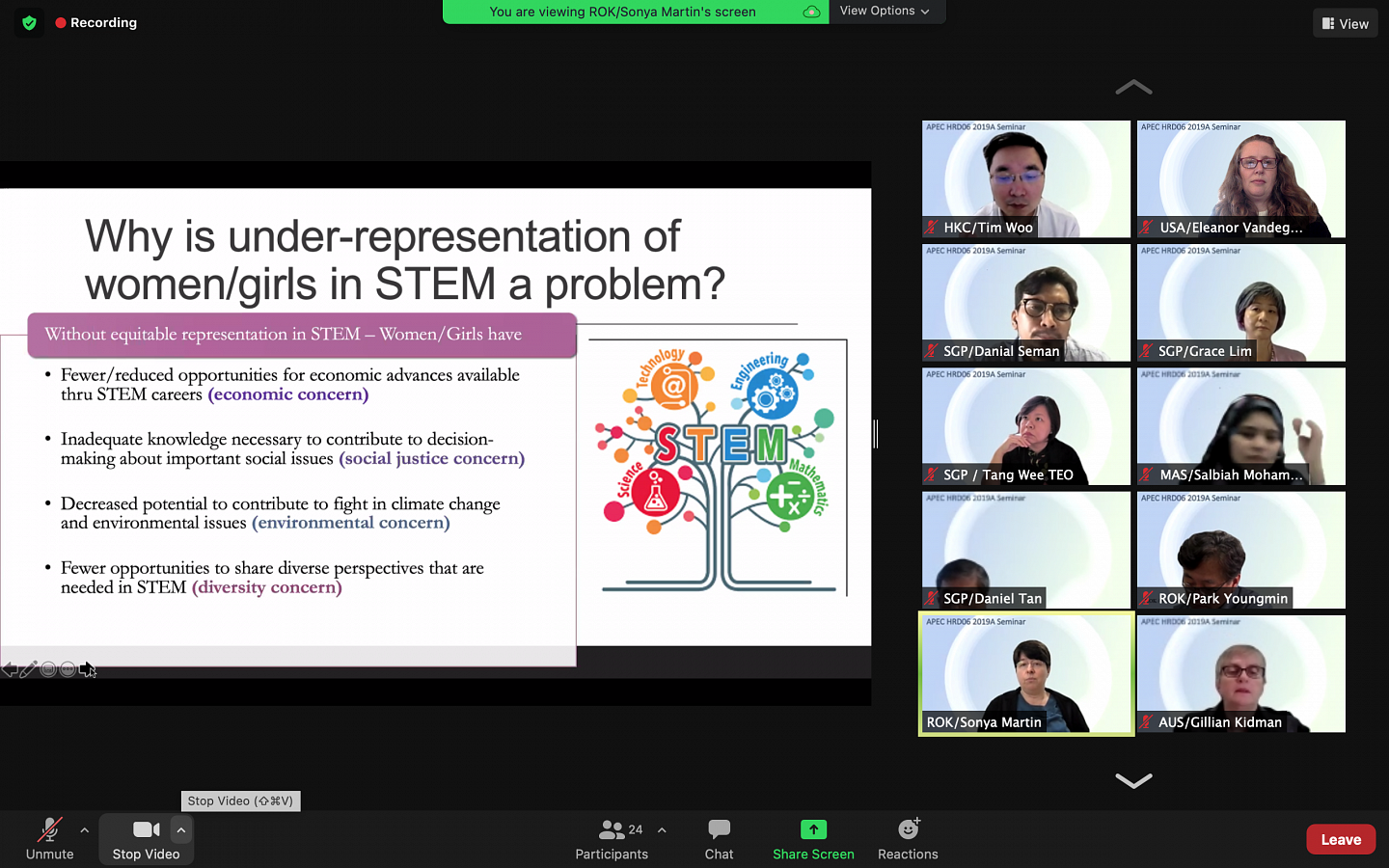STEM education and its advancement have long been an area of importance—UO’s Elly Vandegrift is at the forefront of innovation and positive change at the global level.
Vandegrift is the program director for Global Science Education Initiatives at UO and the co-Principal Investigator for the AAU STEM mini-grant, which strives to align curricula across different STEM majors. The UO was one of 12 universities named as part of a cohort of AAU member campuses committed to improving undergraduate STEM education in 2019.
Vandegrift has facilitated STEM education and communication workshops at the University of Oregon and across the world with partners such as Nagoya University and Mohammed Al-Mana College of Health Sciences. Most recently, Vandegrift represented the UO and the Association of Pacific Rim Universities at an Asia-Pacific Economic Cooperation virtual seminar in late March. At the seminar, Vandegrift participated in a series of small and large group discussions about improving gender equity in STEM programs across the Asia-Pacific region.
"The three-day seminar focused on the construction of an integrated STEM program model to inform the design, implementation, and assessment of integrated gender-inclusive STEM degree programs. By supporting the design of better-quality STEM education university programs, the APEC project aims to enhance the employability of the STEM workforce," Vandegrift explained.
The Asia-Pacific Economic Cooperative (APEC) seminar brings together representatives from a variety of universities to bring the collaborative grant project to life. The grant, “Actualization of Integrated STEM Degree Programs: A Model to Inform, Catalyze and Shape Inter- and Trans-Disciplinary University Education,” hopes to foundationally change STEM education.
The project organizers envisioned degree programs where a student doesn't just study the mechanics of engineering but also learn science, collaboration, communication skills, and work on problems with real-world relevance, all in courses designed to engage student learning. And they hope to do all of this in a gender-inclusive and equitable STEM learning environment, which can be improved by program design, enrolling more female students, and teaching practices.
Vandegrift was excited to represent the University of Oregon and join in the conversation on improving undergraduate STEM education, curriculum reform, integrated degrees, and mechanisms for improving gender equity and inclusivity in STEM fields.
A major outcome of the seminar are the reports to APEC about the types of possible integrated STEM programs that could be designed to improve gender equity in their region. The APEC is also hoping that some of the universities represented will improve gender equity and develop integrated STEM courses or programs.
From the global perspective of the APEC, Vandegrift has gained immense insight and knowledge that she plans to bring back to UO for future discussions about integrated STEM programs.
- Written by Morgan Hayward and Alyson Johnston, University Communications

